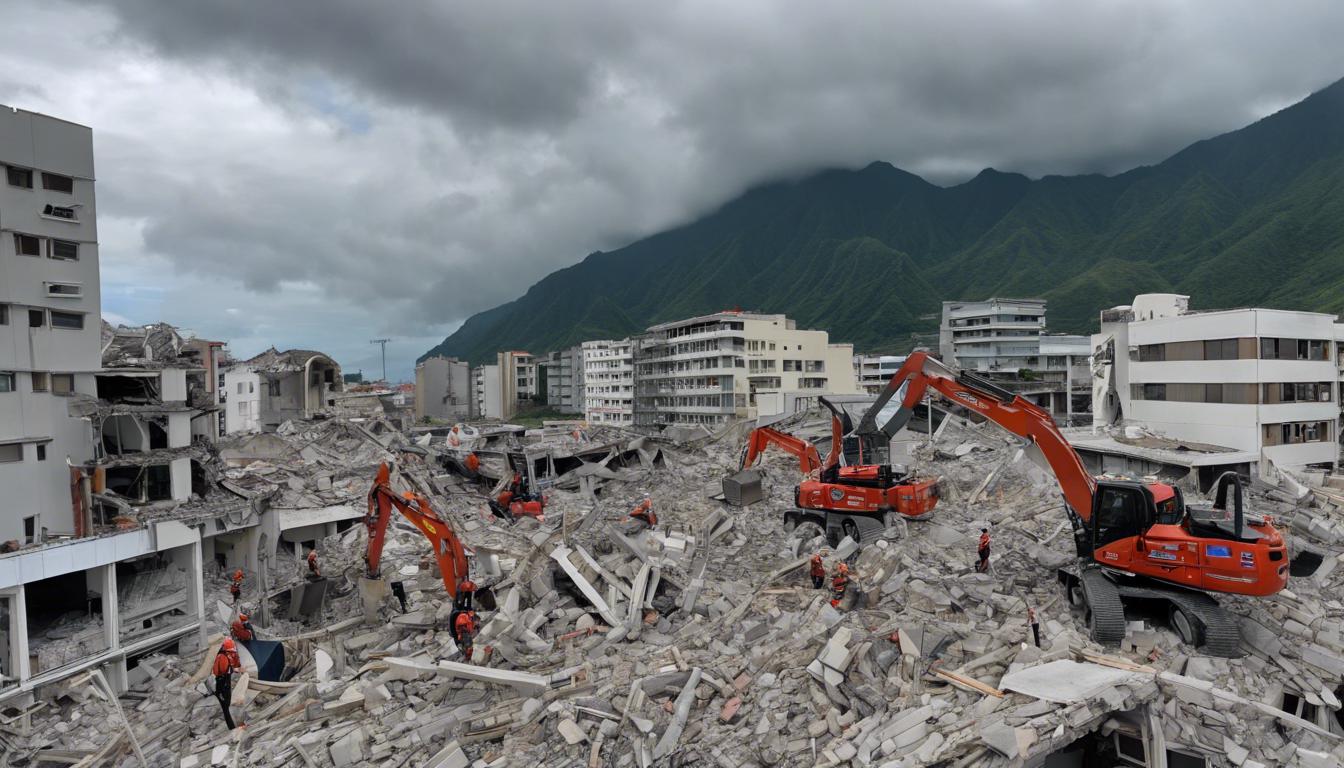Taiwan is reeling from a devastating earthquake, with at least nine dead, over 1,000 injured, and widespread destruction. As the nation rallies to recover, the extent of the quake’s impact on people and infrastructure is being closely monitored.
Taiwan is grappling with the aftermath of its most potent earthquake in 25 years, which has inflicted significant casualties, injuries, and widespread destruction. Striking the east coast with a magnitude originally measured at 7.2 but later reported up to 7.7, this seismic event has led to at least nine fatalities and over 1,000 injuries. The epicenter near Hualien city bore the brunt of the impact, causing buildings to teeter, roads to block, and triggering rockslides in areas like Taroko National Park.
Rescue teams are working diligently across the affected zones, focusing on locating and saving over 150 individuals who are either trapped or unaccounted for. Among those awaiting rescue are approximately 80 people in mining regions and 50 hotel employees stranded due to landslides within the national park. Despite the difficulties posed by over 50 aftershocks, ongoing efforts aim to clear debris, stabilize infrastructure, and provide immediate assistance to those in peril.
The earthquake’s devastation also led to tsunami warnings across nearby islands and isolated Hualien by disrupting its transport links, including train lines crucial for connectivity with the rest of Taiwan. Power outages and internet disruptions have further complicated recovery efforts, highlighting the quake’s broad impact.
President-elect Lai Ching-te has prioritized rescuing those affected as the nation rallies to support each other through this crisis. Taiwan’s history with seismic activities and its robust preparedness measures are being tested as the full economic and infrastructural impact remains to be assessed. While Taiwan has received international offers of assistance, it has notably declined aid from China amidst existing political tensions.
As the search and rescue missions continue, Taiwan stands resilient, focusing on recovery and the welfare of its citizens in the quake’s wake.













